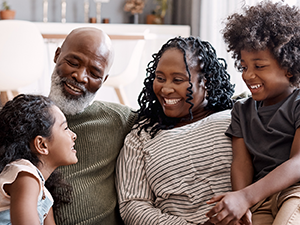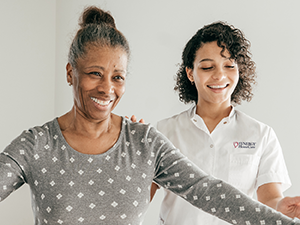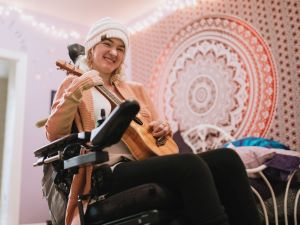6 Holiday Safety Tips for Older Adults at Home
December 9, 2025


Welcome to the SYNERGY HomeCare Knowledge Center – your hub for FREE family caregiver resources, senior care tips, and expert guidance. Whether you’re caring for an aging parent or a loved one living with a health condition, our goal is to help keep life moving forward for the people you care about – and for you, the caregiver.

Concerned about your aging parents? Recognize the Top 10 Signs your parents may need more help at home.

Caring for children and aging parents? Learn how to balance your family’s unique needs with our FREE Sandwich Generation Family Caregiver Guide.

Caring for a loved one living with Alzheimer’s or dementia? Download our FREE Memory Care Family Resource Guide for expert information and resources.

If you or your loved one are navigating a cancer diagnosis, you’re not walking alone. Download our FREE Cancer Care Family Resource Guide for expert help every step of the way.

Did you know that more than one out of four older adults fall each year? Learn how to prevent falls and ensure a safe home environment with our FREE Fall Prevention Guide.

We partnered with Dr. Macie Smith, SYNERGY HomeCare Gerontologist and best-selling author, to create this guide, which shares details and supportive resources to enrich physical, emotional, and social wellness for seniors and their families.

Families can make a big difference in creating an inclusive and supportive environment for their loved ones with disabilities. This guide was created to help families of adults with physical, developmental, intellectual, and sensory disabilities.

Home is for Healing. Get practical tools, tips, and strategies to plan a safe transition from hospital to home with our FREE Returning Home Workbook and Guide.
December 9, 2025
December 2, 2025
November 25, 2025
November 18, 2025
November 10, 2025
June 10, 2025
June 7, 2025
May 29, 2025
July 23, 2025
June 10, 2025
November 15, 2023
March 7, 2023
January 24, 2023
September 20, 2022
August 18, 2012
December 28, 2011